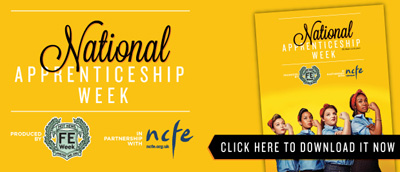It’s folly to try to transfer a university funding model to FE, says Toni Pearce
National Apprenticeship Week celebrates the success of a system that creates education and employment opportunities for thousands of young people and adults. That’s why it is so worrying that the government is introducing initiatives that haven’t been proven to work or to save money.
From August this year, prospective apprentices aged 24 and over will be expected to pay for their own training or to take out a loan of up to £4,000 per year. Research from the Department for Business, Innovation and Skills (BIS) last year revealed that only 11 per cent of respondents would be willing to take out such a loan.
The decision to place sky-high prices on training almost certainly will reduce the number of adult apprentices – workers who already get a lower wage, justified as a trade off for free training. So how can it be acceptable that they not only pay for their education, but also for the privilege to go to work for a lower wage?
The government constantly fails to acknowledge the unique nature of FE and those who participate in it. FE is not ‘baby-university’; carbon-copying a system that doesn’t work in HE over to FE and to apprenticeships is surely headed for failure.
A university funding model cannot be transferred, not least because of the lack of student financial support available to adults in FE. It is absurd to expect students who are working for less than the minimum wage to take out a loan for their study without the opportunity of maintenance grants or loans, especially since the removal of the adult learner grant.
Skills and education at this level should always be free.”
Last year, the Department for Education conceded that it was unacceptable to force students who complete access courses and progress into HE to take out two loans, and agreed to write off FE loans for those students. That we now have to make the same arguments for those who take vocational routes through FE into HE is typical of the government’s failure to offer parity between academic and vocational options. It also risks making the academic route more attractive.
On top of all this, many of our members say that their institutions, and their prospective students, are not aware of the new system or how it will work. With just over a month to go until applications open, it is deeply worrying that providers haven’t yet been properly briefed.
Over the past two years the sector has become used to fighting battles with a disengaged and ill-informed secretary of state, but this wrong-headedness is up there with his worst moves. Skills and education at this level should always be free, particularly for those who have been failed by the system the first time around.
The NUS is working with Unison, the University and College Union and the Association of Teachers and Lecturers to campaign against FE fees and loans, and is delighted to have had the support of so many MPs. But we are incredibly disappointed that so few have been made fully aware of the policy and the impact that it could have on their constituents, especially in terms of employment prospects through apprenticeships.
I would love to use this week to celebrate apprenticeships, to promote them as a real alternative to academic learning. But instead I worry that National Apprenticeship Week could soon look less like a party and more like a memorial.
Toni Pearce is the NUS Vice President for Further Education
—————————————————————————————–
This article was published in a special 16 page National Apprenticeship Week 2013 supplement (click on image below to download 15mb PDF









Your thoughts